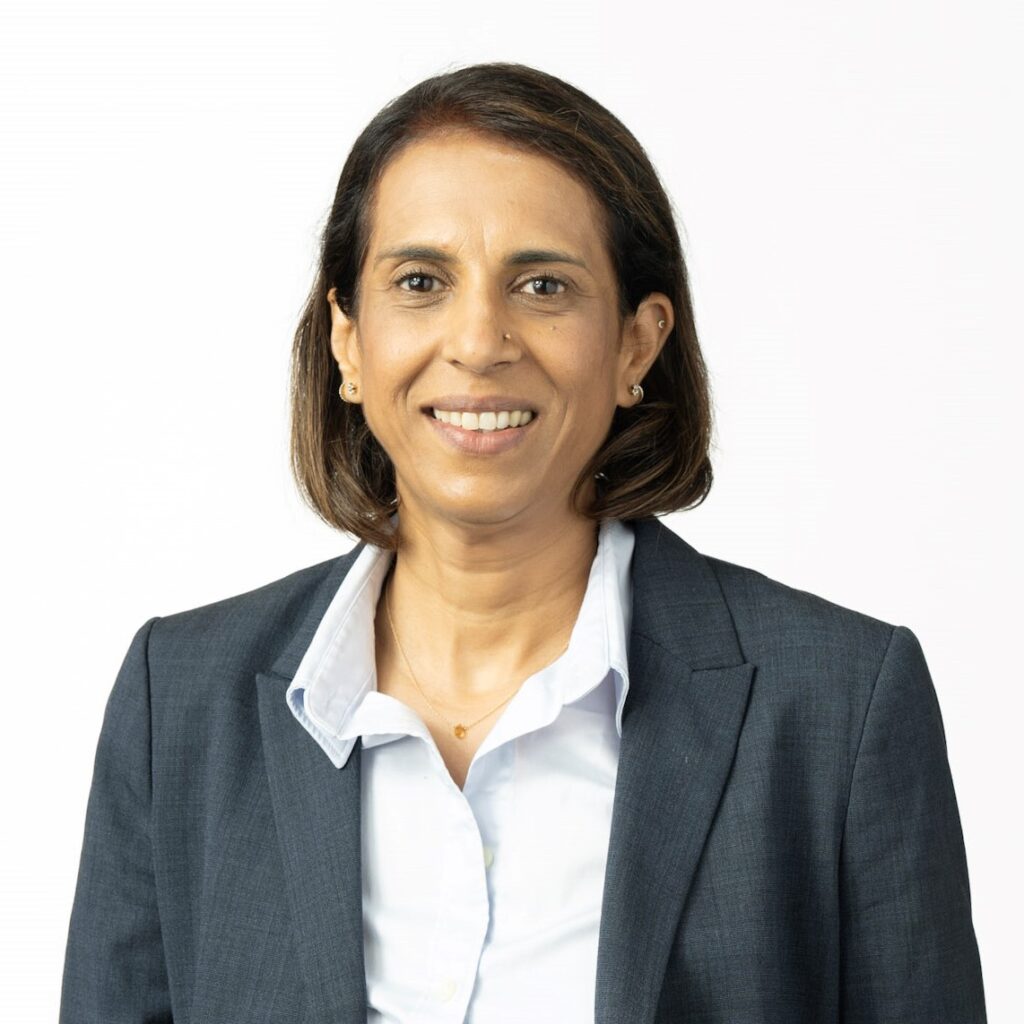After completing her master’s in computer engineering from Michigan State University, Gauri Rao, PharmD, MS, began her career as a software engineer. But she quickly realized that her true passion lay in healthcare, so she transitioned to where she believed she could make the most impact on people’s lives—the field of pharmacy.
“While completing my PharmD, I realized I wanted to focus on translational research that would have an impact at the bedside,” says Rao, who earned her PharmD and master’s in pharmacometrics from the University at Buffalo. Her USC connections were forming even then, as she studied under her longtime mentor, Alan Forrest, USC PharmD ’79, an internationally recognized expert in anti-infective pharmacokinetics and pharmacodynamics who had trained under Roger Jelliffe, the noted pharmacokinetics pioneer who founded the USC Laboratory of Applied Pharmacokinetics in 1973. Upon completion of her postdoctoral training, Rao transitioned in 2013 to an academic role at the University at Buffalo, where she collaborated with Jelliffe and antimicrobial pharmacology expert Brian Tsuji in collaboration with Hoffman Roche.
Rao continued her journey at the University of North Carolina’s Eshelman School of Pharmacy—where Forrest had moved—from 2016 to 2023 before moving to Southern California in August to join USC Mann as an associate professor of clinical pharmacy with tenure.
Optimizing Treatments
As a postdoc at Buffalo, Rao was very interested in researching the impact of treatment on interactions between the host and the infecting pathogen, developing a strong focus in quantitative systems pharmacology. A large part of her research is also focused on strategies to achieve adequate drug exposure within the lung using relevant in vitro as well as animal models of infection. Rao has established a strong funding track record, having received funding from National Institute of Allergy and Infectious Diseases—including two R-01 grants totaling more than $6 million—Department of Defense, the Cystic Fibrosis Foundation, and the Food and Drug Administration.
“The knowledge Dr. Rao is building about complex host-pathogen interactions and disruptions is vital to addressing antimicrobial resistance,” says USC Mann Dean Vassilios Papadopoulos. “This is an urgent issue globally, as antibiotic-resistant ‘superbugs’ are making infections harder to treat. We are excited to have her join our faculty.”
At USC Mann, Rao will direct the Center for Quantitative Drug and Disease Modeling, an interdisciplinary research center and vital training ground for graduate students and postdoctoral fellows on model-informed drug discovery and development. At the center, she looks forward to creating interdisciplinary collaborations with researchers from across the university in medicine, public health, biostatistics and engineering—including David D’Argenio, professor in the Alfred E. Mann Department of Biomedical Engineering and Chonette Chair in Biomedical Technology at USC Viterbi School of Engineering, another longtime mentor. “I am excited about the opportunity to collaborate with David, who is one of the leading experts on pharmacometrics. This will enable us to develop a strong interdisciplinary framework that is essential for establishing such a center with a strong focus on pharmacometrics training,” Rao says.
“I congratulate the leadership of the Mann School on recruiting Dr. Rao to USC,” D’Argenio says. “Gauri is recognized internationally for her fundamental and translational work on host pathogen interactions, and I look forward to expanding our collaboration now that she is at USC.”
“Dr. Rao will lead advancement of the science of quantitative systems pharmacology, forging new collaborations and partnerships in academic and industry to expand the field’s therapeutic impact,” says Tien Ng, interim chair of the Titus Family Department of Clinical Pharmacy.
As a new member of the Trojan Family, Rao is excited about building her research program at USC and developing the next generation of pharmacometrics experts. She looks forward to helping students hone their abilities through supportive mentorship as she engages them as full research partners.
“The need for pharmacometrics is growing faster than we can train people,” she notes. “I want to develop a really strong training program that excites students to enter the field and prepares them for long-term success.”


